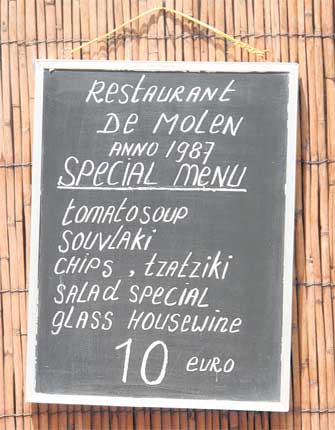Sun, sea... and a currency crisis? This summer's holiday essential
Tourist numbers are soaring in Greece and Portugal as Britons hope for slashed prices

Your support helps us to tell the story
From reproductive rights to climate change to Big Tech, The Independent is on the ground when the story is developing. Whether it's investigating the financials of Elon Musk's pro-Trump PAC or producing our latest documentary, 'The A Word', which shines a light on the American women fighting for reproductive rights, we know how important it is to parse out the facts from the messaging.
At such a critical moment in US history, we need reporters on the ground. Your donation allows us to keep sending journalists to speak to both sides of the story.
The Independent is trusted by Americans across the entire political spectrum. And unlike many other quality news outlets, we choose not to lock Americans out of our reporting and analysis with paywalls. We believe quality journalism should be available to everyone, paid for by those who can afford it.
Your support makes all the difference."Espresso on the bar, only €1.20," promises a hilltop café in the pretty port of Agios Nikolaos on Greece's largest island, Crete. Nearby, a restaurant promises a €10 (£9) "special menu" with soup, salad, souvlaki and a glass of wine. And down at sea level, bar owners have scored out the previous €5 price for a large beer and are now charging €4.
The turmoil in the eurozone's most distressed economies seems to have delivered one unexpected benefit: an influx of British holidaymakers looking for bargains.
British visitors to Greece increased by two-thirds compared with the same period last year, according to figures released by the Office for National Statistics yesterday. Visitors to Ireland and Portugal, the other two nations which have had to be bailed out with massive EU/IMF packages, also rose.
Some 52,000 British tourists entered Greece in the first three months of the year, the ONS says, compared with just 32,000 in the same period in 2010. And the trend is likely to grow as the summer wears on. Visitors to Ireland jumped from 526,000 to 577,000 and people heading to Portugal from 202,000 to 228,000 – at a time when British tourism abroad has been virtually static.
There is some evidence that they may have diverted from other European destinations, especially Spain and Italy, not until later seen as inevitable candidates for financial bailouts. The sheer volume of media attention to the three bailout nations of Greece Ireland and Portugal may also have planted the idea of visiting in the minds of potential travellers.
"Greece is very much open for business," said Noel Josephides, founder of the specialist operator Sunvil. "The eternals of Greece's huge appeal have not changed. The sun will still shine, the sea will remain blue and local tavernas and shops will be as keen for your custom as ever. Our volume is up and our margins are down for this summer, but that's the same story across the travel industry and across all destinations."
His company has also launched a new charter flight for this summer from Heathrow to Beja, in Portugal's Alentejo region. But any scenes of civil unrest in Athens or Lisbon may put visitors off, if the experience of the North African states is anything to go by.
The official figures confirm the news reports that the resorts and historical sites of Egypt and Tunisia were abandoned by British tourists this year. Visits to Egypt and Tunisia almost halved, from 202,000 to 115,000 and from 59,000 to 31,000 respectively, comparing the first quarter s of 2010 and 2011. The United Arab Emirates saw a smaller decline.
Mike Saul, Head of Hospitality and Leisure at Barclays Corporate, said the travel industry would not be immune from economic woes.
Join our commenting forum
Join thought-provoking conversations, follow other Independent readers and see their replies
Comments